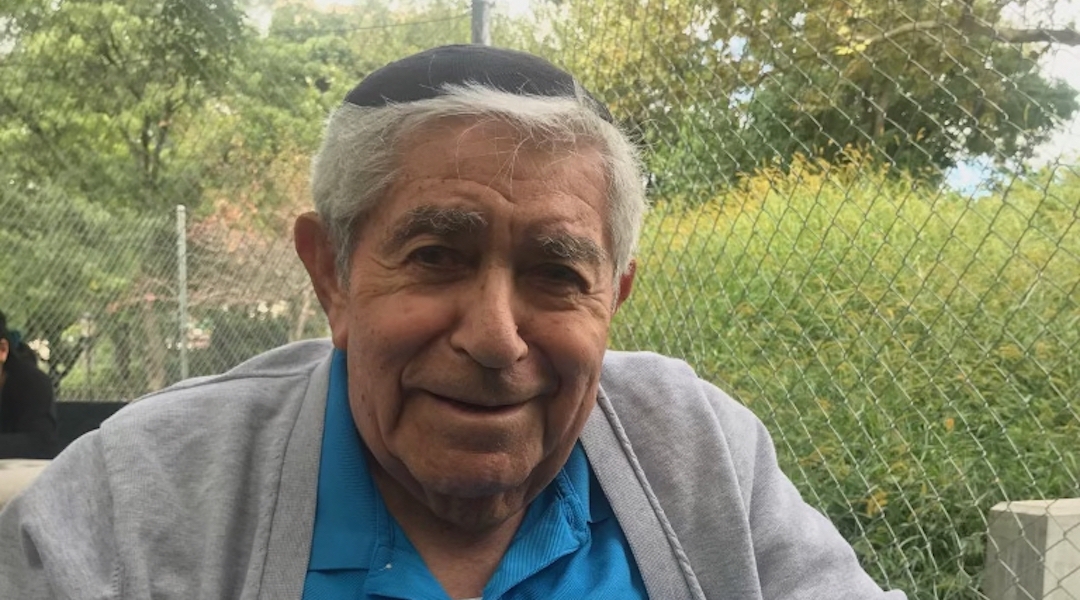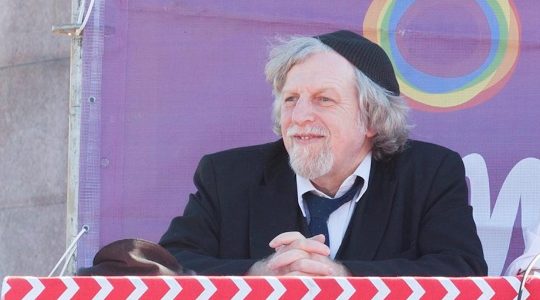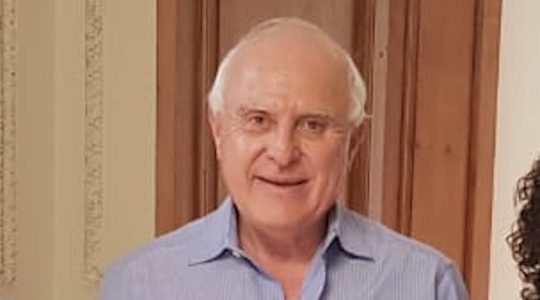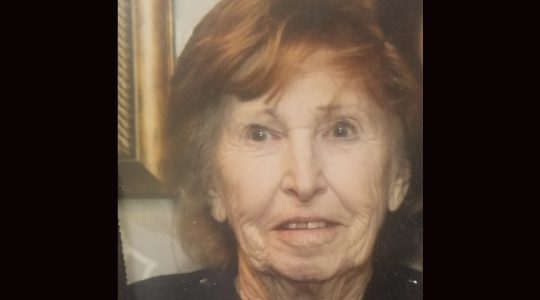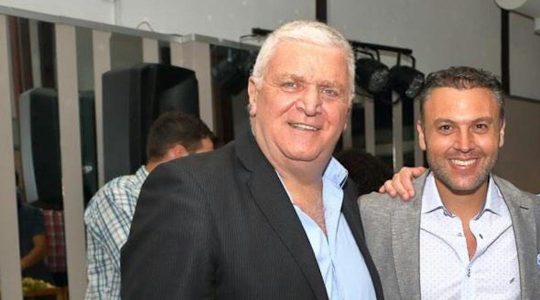(JTA) — On the most solemn day of the Jewish calendar, the voice of Milton Steinberg rose to the heavens.
For more than a decade Steinberg, a Holocaust survivor with a resonant voice and a lifelong passion for cantorial music, joined Cantor Shimon Craimer of the Riverdale Jewish Center during the recitation of the Avodah prayer, a centerpiece of the Yom Kippur liturgy. With his shock of silver-gray hair, Steinberg was considered an elder statesman of the Orthodox synagogue he helped found and his stature contrasted with the much younger cantor.
“I will never forget the first time,” Craimer told the Jewish Telegraphic Agency from Israel, where he now lives. “It was like I was the protege and he was the master. … You could feel his entire life coming out. It was magical.”
Steinberg, who died on Jan. 14 from complications of COVID-19 at the age of 96, was devoted to traditional Eastern European prayers and liturgical music from his childhood growing up in a religious family in Nagyaroszi, a village in northern Hungary.
The Nazis occupied the country in 1944 and Steinberg, then about 20, was forced into slave labor camps. He later survived a death march to Austria, where he was liberated on May 4, 1945. His mother and three younger siblings perished at Auschwitz. His father had immigrated a few years earlier to New York City, where the two reunited after the war.
Steinberg met his wife, Lillie (nee Friedberg), at night school English classes. Born in Slovakia, she also was a Holocaust survivor who in 1942 had been on the second transport of women and children to Auschwitz. After toiling in a Manhattan factory, Steinberg and a co-worker launched their own sportswear business, buoyed by Lillie’s keen sense of style.
The family eventually settled in New York City, in the Riverdale section of the Bronx, where they raised their two daughters. In addition to his leadership at the Riverdale Jewish Center, Steinberg also was a longtime supporter of SAR Academy and other Jewish causes. Over the years, Steinberg often stepped up to lead daily prayers at the synagogue, which was an integral part of the family’s life.
“People would have tears in their eyes,” Arlene Steinberg said of her father’s voice. “Cantorial music meant everything to him.”
Following his wife’s death in 2018 — they were married for 69 years — Steinberg reflected on the gratitude he felt for their survival and shared lives.
“I had nothing, she had nothing, and we found each other and built a world together,” he once told his granddaughter.
Steinberg is survived by two daughters, six grandchildren and five great-grandchildren.
JTA has documented Jewish history in real-time for over a century. Keep our journalism strong by joining us in supporting independent, award-winning reporting.
